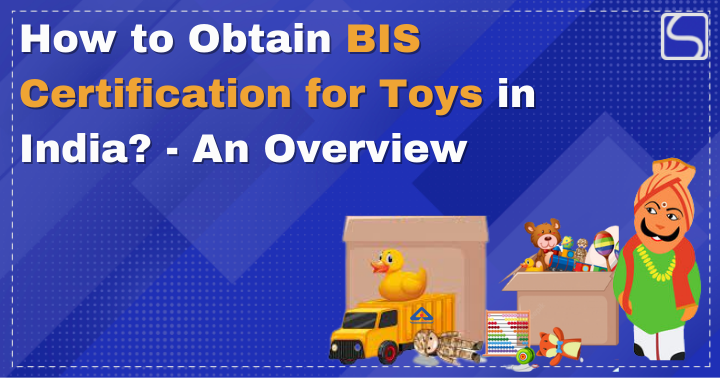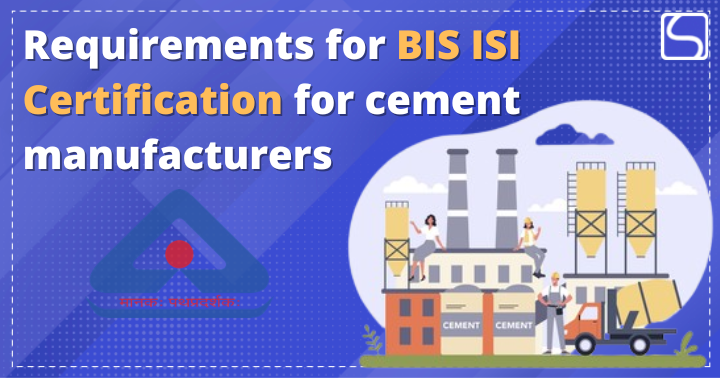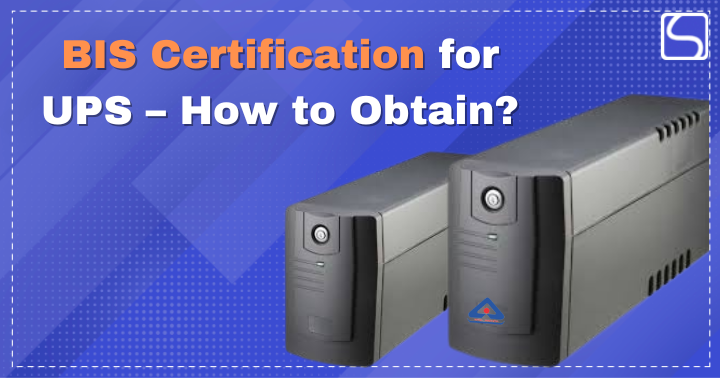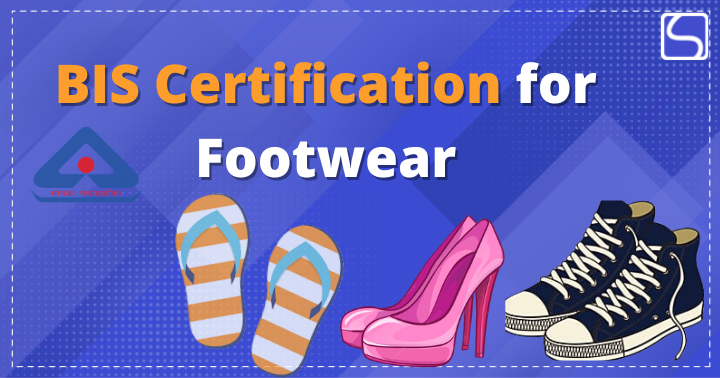How to Obtain BIS Certification for Toys in India? – An Overview

Karan Singh | Updated: Nov 29, 2022 | Category: BIS
As we all know that childhood is empty without toys. Toys distract children and keep them engaged & entertained for a long time. Therefore, it is necessary to check whether the toys are safe or not for children. In 2020, the Toys (Quality Control) Order required all toys and materials for children below 14 years to be certified by the BIS (Bureau of Indian Standards). Absence of the BIS Certification can result in criminal liability, including imprisonment & huge fines. The BIS has mandated that all non-electric toys and electric toys bear the ISI Mark and toys without ISI Mark are not allowed to be sold in the Indian Market. According to this order, the Bureau of Indian Standards initiated the process of issuing Licenses to toy manufacturers to use the BIS Standard Mark as per Schemes I & Schedule II of the BIS (Conformity Assessment) Regulations, 2018. This order also applies to all the Toys being imported into India and the Foreign Manufacturer of Toys must also obtain a valid BIS Certification for Toys, as it is compulsory for all the manufacturers of Toys in India. Scroll down to check more details regarding BIS Certification for Toys.
Table of Contents
What is an ISI Mark?
The ISI Mark is a standard mark for industrial products in India. This Mark certifies that a product conforms to an Indian Standard developed by the BIS. This Mark is the most recognised Certification Mark in the Indian Subcontinent. The ISI was renamed the Bureau of Indian Standards in 1987.
Following is the list of general products with ISI Marks:
- Electrical Device;
- LPG Cylinders & LPG Valves;
- Packaged drinking water & mineral water;
- Portland Cement;
- Kitchen appliances & equipment;
- Processed cereal-based complementary foods;
- Thermometers.
What is the Role of BIS in Maintaining the Products’ Quality in India?
BIS, or the Bureau of Indian Standards is a National Standards Body established by the BIS Act of 1986. It works under the aegis of the Ministry of Consumer Affairs, Food and Public Distribution, Government of India. Later the Act was repealed by the BIS Act 2016, and BIS was re-established as the National Standards Body of India. The primary purpose for the establishment of the BIS was to formulate, promote & recognise the Standards concerning different products. The Foreign Manufacturer also needs to obtain the BIS Certification before marking its product presence in the Indian Market.
The BIS, via Testing, standardisation & Certification, has been providing various advantages not only to the customers but also to the economy of India in the way of providing good quality & reliable products that are completely safe for use, minimising health hazards to customers, promoting & import substitutes, etc.
Different Types of Toys that Require BIS Certification in India
Following are the two different types of Toys that require BIS Certification in India:
| Types of Toys | Applicable Main Standard | Applicable Secondary Standard |
| Electric Toys – These are toys that have a minimum of one function dependent on electricity as prescribed under the scope of IS 15644. | IS 15644:2006 | IS 9873 (Part 1, 2, 3, 4, 7 & 9) |
| Non-Electric Toys – These are ordinary toys like dolls, puzzles, etc., which don’t have any function dependent on electricity. | IS 9873 (Part 1):2019 | IS 9873 (Part 2, 3, 4, 7 & 9) |
Different Indian Standards for Toys
- IS 9873: Safety of Toys – The safety of kids is one of the sensitive subjects, which is primarily close to the heart of every parent. When buying any toys from the market, product safety remains to be a vital issue. Loose components, sharp edges, presence of toxic materials & substances which are too flammable can all cause severe damage to the kid, and severe penalties will be imposed on the suppliers of any toy deemed to be unsafe.
- IS 9873 Part-1 (Mechanical and Physical Properties of Toys): The principle of IS 9873 Part-1 standard is to lessen the risks related to children’s toys. Particular tests are performed on toys depending on the type of toy and the toy’s characteristics. Moreover, a proper warning label should be addressed on the products in this Standard.
- IS 9873 Part-2 (Flammability of Toys) – This determines the toys’ flammability. It provides basic requirements along with exact requirements for specific toys which come out to be the most harmful or damaging; this comprises toys to be worn on the head (wigs, beards, etc.,) toy disguise costumes & those intended to be worn by kids during any play.
- IS 9873 Part-3 (Migration of Certain Elements): This Indian Standard involves determining the migration of the following elements such as Antimony, Lead, Cadmium, Barium, and Selenium from easily reached parts of toys and this is applied to the following materials of toys:
- Polymeric and similar materials;
- Paints;
- Coatings;
- Varnishes;
- Ceramic or glass or metallic materials;
- Lacquers;
- Printing inks or similar material;
- Textiles, paper & paper board;
- Other materials, whether mass coloured/not;
- Pliable modelling materials, etc.
- IS 9873 Part-4: Slides, Swing & Similar Activity Toys: This specifies requirements for indoor and outdoor activity toys for domestic family uses intended to bear the children’s weight under 14 years. This Indian Standard covers rung ladders, head & neck equipment, climbing frames, rocking toys, motion rides, stairways, stepladders, etc.
- IS 9873 Part-7: This Standard involves requirements for the safety of finger paints only. Finger paints are aqueous, liquid or semi-solid, coloured mixtures specially designed for children to apply directly. This Standard specifies limits that Finger Paints may contain for listed colourants, amines, preservatives, and migration of certain elements, N-Nitrosamines, Benzo (a) Pyrene, and label warning.
- IS 9873 Part-9: Certain Phthalates Esters in Toys: This Indian Standard specifies a maximum acceptable level in children’s toys & products. This Standard provides a separate limit for toys meant for children under 4 years of age & other toy products.
What are the Benefits of BIS Certification for Toys in India?
BIS Certification for Toys offers many benefits to manufacturers or sellers, or distributors of the product, which further helps in building reliability & trustworthiness, thus retaining the customers. The following are the benefits of BIS Certification for Toys:
- This Certification act as a protective shield against heavy fine & penalties which could be imposed for not certifying the toys;
- BIS Certification provides a competitive advantage over competitors;
- It provides easy market access;
- BIS Certification for Toys serves as evidence that a product has been certified & tested as per prescribed standards;
- A certified toy provides a sense of safety & security to the customers, thus ensuring easy acceptance.
Some Basic Requirements of BIS Certification for Toys
Following are some basic requirements of BIS Certification for Toys:
- If a toys’ Manufacturer has manufacturing units operating from different locations than as prescribed under the Provision of Scheme-I of Schedule-II of BIS (Conformity Assessment) Regulation, 2018, a License to use/apply an ISI Mark, only be issued by the Bureau of Indian Standards for specific manufacturing units or premises. That means, for each manufacturing unit or premise, the Manufacturer has to apply separately; it doesn’t matter if the Manufacturer willing to obtain BIS Certification for Toys is an Indian Manufacturer or a Foreign Manufacturer.
- In case the BIS Certification for Toys is needed for more than one type of toy, i.e., Electrical Toys & Non-Electrical Toys, separate applications should be made for each type.
- To increase the productivity & easiness for either BIS Certification for Domestic Manufacturers or BIS Certification for Import of toys which are applying may choose one of the above-mentioned standards based on the type of the toy. However, the samples are going to be tested by the Bureau of Indian Standards for Conformity to the primary Standard & secondary standards which are applicable. Toys must fulfil the requirements of the corresponding Standard.
- If a Toy’s Manufacturer is only indulged in distribution & marketing, then the order doesn’t apply to the particular practice. According to the Provisions of Scheme-I of Schedule-II of BIS (Conformity Assessment) Regulations, 2018, the applying party for BIS Certification for Toys in India only be given to the Manufacturer.
Following are some requirements as per the Indian Standards for the testing facilities to be fulfilled before applying for the BIS Certification for Toys in India:
- If the Manufacturer is applying for non-electrical toys, then the testing facilities comply with IS 9873 (Part-1):2019;
- If the Manufacturer is applying for electrical toys, the testing facilities must comply with the requirements of IS 15644:2006;
- BIS Certification also comprises a Mandatory Scheme of Testing & inspection, which simply defines the frequency of conducting various tests;
- In-house facilities tests are not vital, and such tests are conducted at BIS Certified Labs.
Documents Required for BIS Certification for Toys in India
Following is the list of all the documents required for BIS Certification for Toys:
- ID proof of the applicant or Manufacturer;
- Details of Machinery being utilised;
- Undertaking;
- Quality Control Parameters & their records;
- Detailed Factory Premises Layout along with the nearby landmarks;
- Detailed diagram of the product;
- Flow chart of the manufacturing process;
- A list of raw materials used at the time of toys production;
- Adequate Testing Facilities;
- Factory Registration documents;
- Duly-signed application form;
- Product test reports by a BIS-Certified Lab.
Procedure for BIS Certification for Toys in India
In order to obtain BIS Certification for Toys, you need to follow the steps mentioned below:
- Procedure for Indian Manufacturers:
- First, the application form for BIS Certification for Toys should be duly filled out by the Manufacturer of Toys;
- Then a Factory inspection will be conducted to assess the Manufacturing Premise, the production process of toys and more;
- During Factory Inspection, the product samples will be taken for Testing in a 3rd party laboratory;
- Then the test report of the product sample will be examined;
- Once satisfied, BIS Certification for Toys will be issued if a product complies with the established standards.
- Procedure for Foreign Manufacturers:
- First, the applicant needs to fill out the application form for BIS Certification and submit it along with the required documents;
- With application form submission requisite fee will be paid, and then Factory inspection will be initiated;
- The process of BIS Certification for Toys will only move forward if the Factory Inspection & product testing report indicate conformity with the established laws;
- Prior to providing a grant of BIS License, a License fee & advance minimum marking fee will be paid;
- Once the payments are made, an agreement & indemnity bond will be signed, including the prescribed fee, immediately after getting a grant for a BIS License[1];
- If a product conforms to the Standards, A BIS Certification for Toys will be issued.
Instructions for Testing of Product Samples by BIS-Certified Labs
Following are some important instructions for Testing product samples by BIS Certified Labs:
- Before Testing, the Lab, concerning the product sample, shall do a detailed contract review & accompanying test request;
- The test lab shall conduct the tests strictly in accordance with the test methods & test conditions as prescribed in the Indian Standards and use properly calibrated equipment & reliable reference materials;
- The test report must be sent to the BIS only. The Lab shall send the Test Report to the concerned Branch or Lab or Inspection Office that has sent the product sample.
- The Lab shall keep the remnants of the product sample after testing for a minimum period of 3 months before they are disposed of or returned to the Manufacturer or BIS;
- The Lab should take those samples for testing only which are received in good condition & have proper BIS seal as indicated in the test request & a statement to this effect is to be given in the test report by the concerned laboratory. In a matter of any doubt on the integrity of product sample(s) delivered with BIS test request/the quantity of sample being inadequate, a formal report shall be sent to the concerned Branch Office under intimation of CQAPD.
- The Lab shall maintain the record of observations or graphs or raw data, etc. and a copy of the test report for a minimum period of 3 years.
Terms and Conditions for BIS Certified Labs
Following are the terms & conditions for BIS-Certified Labs:
- The Lab’s recognition shall be for 3 years. Recognition fees, as notified from time to time, are payable in advance. The recognition of labs is renewable as per the Scheme;
- BIS may suspend, de-recognise, or reduce the scope of recognition/ask for reassessment if needed;
- The Lab shall issue the test report(s) within a week of completion of tests;
- The Lab shall agree to participate in proficiency testing or Inter Lab Test Comparison Programs organised by the Bureau of Indian Standards for assessing its technical competence. The Bureau of Indian Standards will not pay any charges for Testing in this connection when BIS organise the proficiency testing;
- The charges for Testing declared by the laboratory during recognition or renewal shall be valid for 3 years. No interim revision will be permitted in this period unless the Indian Standards is revised or an amendment is issued to it;
- The test report shall include details as per the information given in ISO/IS/IEC 17025 or ISO/IEC 17025 comprising details with respect to amendment(s) considered while performing the test, clause reference of the test & its specified values as per the relevant Indian Standards and dates of commencement & completion of Testing.
Complaint on Non-Compliance
While using the toys, if the customers or parents come across that the Toy Manufacturing Company has compromised with the quality, reliability & safety of its products and it doesn’t bear the BIS Mark on the product or the Manufacturing Company has been violating the standard guidelines provided by the BIS, then they can prefer a complaint through registering an online complaint on the official website of the BIS.
Also, the customer can register complaints by personally contacting/writing to the PGO (Public Grievance Officer) at the nearest Branch or Regional Office of the Bureau of Indian Standard/directly to the Department of Consumer Affairs. The non-compliance with the BIS Certification for Toys may result in manufacturing companies facing criminal liability and jail with or without fines.
Conclusion
It is concluded that it is compulsory for toy importers & manufacturers to get BIS Certification for Toys in order to use the Standard ISI Mark for Toys. Toys without BIS Certification are not allowed to be sold in India.
Read our Article:BIS Certification for Smart Watch – A Complete Analysis














